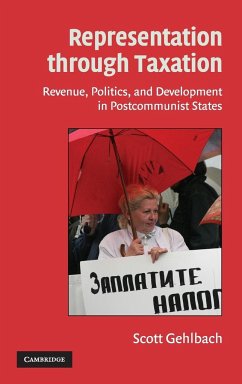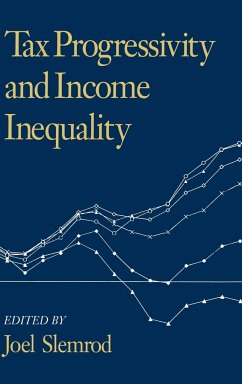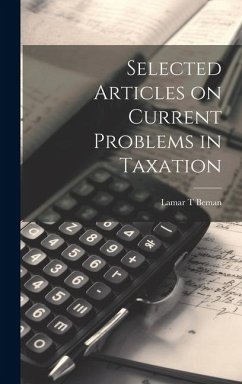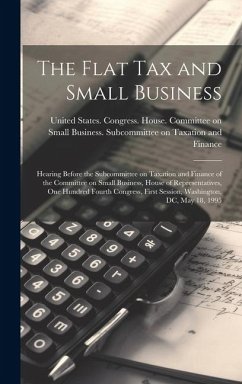
Taxation in a Global Economy
Theory and Evidence

PAYBACK Punkte
64 °P sammeln!
In recent years the increasing international mobility of capital, firms and consumers has begun to constrain tax policies in most OECD countries, playing a major role in reforming national tax systems. Haufler uses the theory of international taxation to consider the fundamental forces underlying this process, covering both factor and commodity taxes, as well as their interaction. Topics include a variety of different international tax avoidance strategies - capital flight, profit shifting in multinational firms, and cross-border shopping by consumers. Situations in which tax competition creat...
In recent years the increasing international mobility of capital, firms and consumers has begun to constrain tax policies in most OECD countries, playing a major role in reforming national tax systems. Haufler uses the theory of international taxation to consider the fundamental forces underlying this process, covering both factor and commodity taxes, as well as their interaction. Topics include a variety of different international tax avoidance strategies - capital flight, profit shifting in multinational firms, and cross-border shopping by consumers. Situations in which tax competition creates conflicting interests between countries are given particular consideration. Haufler addresses the complex issue of coordination in different areas of tax policy, with special emphasis on regional tax harmonization in the European Union. Also included is a detailed introduction to recent theoretical literature.
Table of contents:
1. Introduction; 2. The policy problem; 3. Tax competition: a first look; 4. Factor taxation; 5. Capital tax competition and country size; 6. Factor taxation and income distribution; 7. Profit shifting and the corporate tax structure; 8. The problem of cross-border shopping; 9. Switching to the origin principle?; 10. Optimal taxation with interacting factor and commodity taxes; 11. Commodity and profit taxation with imperfect firm mobility; 12. Country size and the location of monopolists; 13. Summary and policy conclusions; Appendix; References.
Haufler's standard microeconomic analysis considers how international mobility of capital, firms and consumers affects tax policies in most OECD countries. Topics include capital flight, profit shifting in multinational firms, and cross-border shopping. Haufler addresses the issue of coordination in different areas of tax policy, particularly in the EU.
The implications of increasing international factor mobility on tax policy at national and international level.
Table of contents:
1. Introduction; 2. The policy problem; 3. Tax competition: a first look; 4. Factor taxation; 5. Capital tax competition and country size; 6. Factor taxation and income distribution; 7. Profit shifting and the corporate tax structure; 8. The problem of cross-border shopping; 9. Switching to the origin principle?; 10. Optimal taxation with interacting factor and commodity taxes; 11. Commodity and profit taxation with imperfect firm mobility; 12. Country size and the location of monopolists; 13. Summary and policy conclusions; Appendix; References.
Haufler's standard microeconomic analysis considers how international mobility of capital, firms and consumers affects tax policies in most OECD countries. Topics include capital flight, profit shifting in multinational firms, and cross-border shopping. Haufler addresses the issue of coordination in different areas of tax policy, particularly in the EU.
The implications of increasing international factor mobility on tax policy at national and international level.














